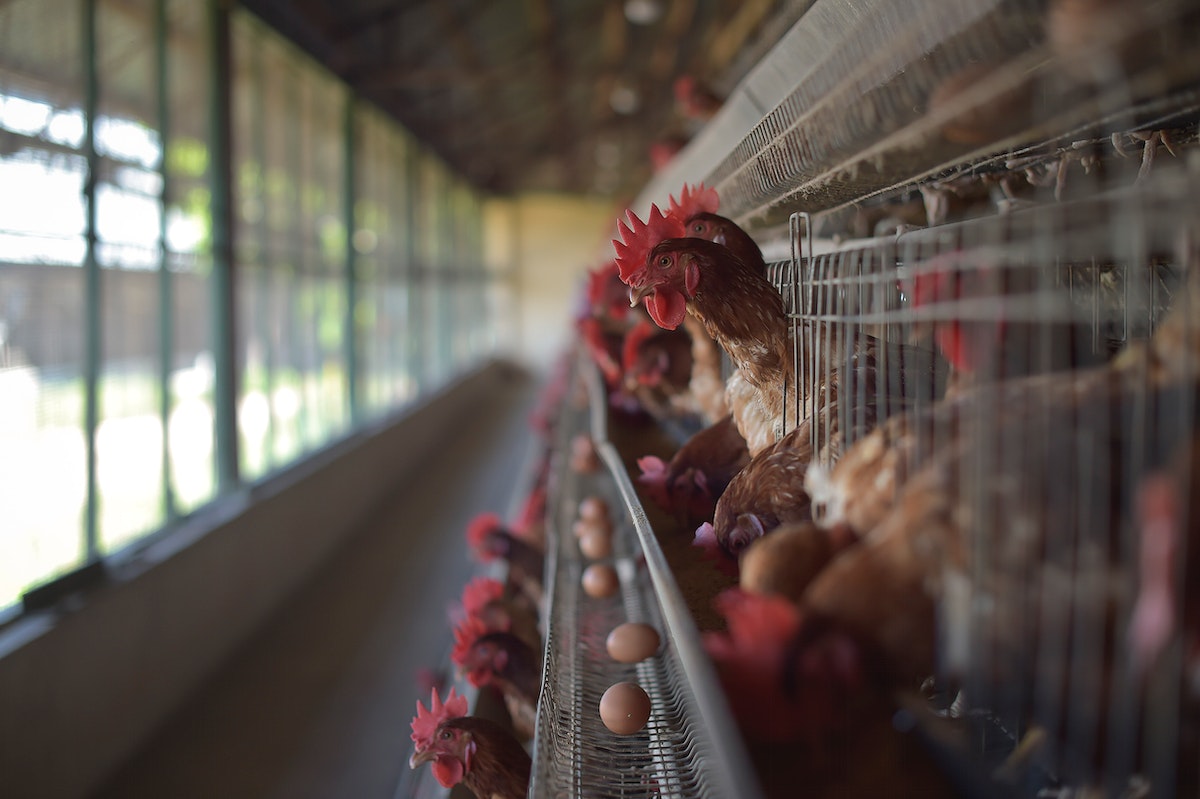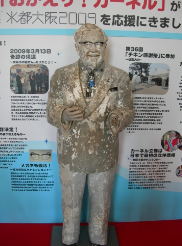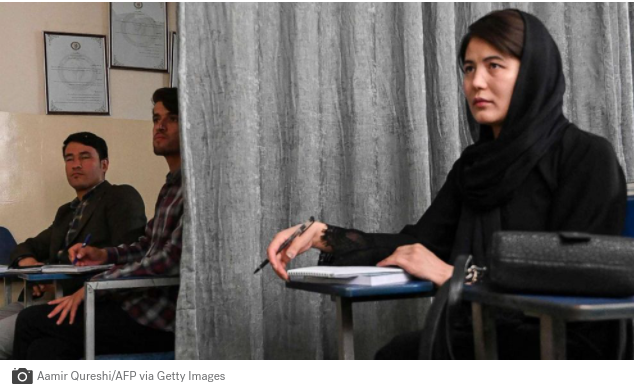Afghan women face oppression under Taliban rule
November 4, 2021
Just over a month into Taliban rule, Afghan women’s education, careers and freedom are already being impacted. This fear of oppression is fueled even further by a Taliban official’s comments – “Women will not be allowed to come to universities or work” (ABC News).
The Taliban follows a set of ideals called Sharia Law. These ideals are fundamental religious concepts of Islam that lay out how a muslim should live his or her life. According to Bloomberg Equality, these laws state that women are “obedient” and if they disobey, their male protectors should “strike” or “beat” them.
Under Sharia Law in the past, women have only been allowed to leave the house if they have a male relative with them. These laws also forced women to be completely covered up from head to toe (Wall Street Journal).
Having lived most of their lives as free people, suddenly all of their freedoms are being stripped away. According to BBC News, 27 year old lawyer Farishta had to go into hiding, the reason being, men she put behind bars were coming after her.
Many women like Farishta who challenged the male dominated and conservative society are now getting targeted because of the role they played in showing women they can achieve professional success.
Western countries have called upon the Taliban to respect women’s rights, especially their access to education.
According to ABC News, the Taliban has taken actions to restrict the education of women and girls in Afghanistan, including restricting certain school subjects and not allowing them into class with men.
Female scholars, artists and journalists have tried to erase any evidence of their education or careers. They’ve gone so far as to burn their degrees, artwork, and any trace of articles they’ve written just so they don’t get targeted by the Taliban.
Scholars and journalists aren’t the only women getting targeted. Female athletes such as 19 year old Marzia Hamidi have also faced big changes in their daily lives.
Hamidi tells Al Jazeera, “When the Taliban came [to power], I was thinking about destroying my medals.”
Since then, Marzia has had to go into hiding due to her large social media presence. She now only posts content of her with a hijab and matching abaya on, out of fear of Afghanistan’s new leaders.
Many Afghan women fear the restrictions on their lives will soon be much more limiting, like how it was when the Taliban was first in power 20 years ago.
In the past, the Taliban imposed cruel punishments on any woman who disobeyed Sharia Law. Women fought hard to get these punishments lifted and now their hard work is being completely overpowered.
20 years of progress for Afghan women’s rights have been erased over a few short months.




























